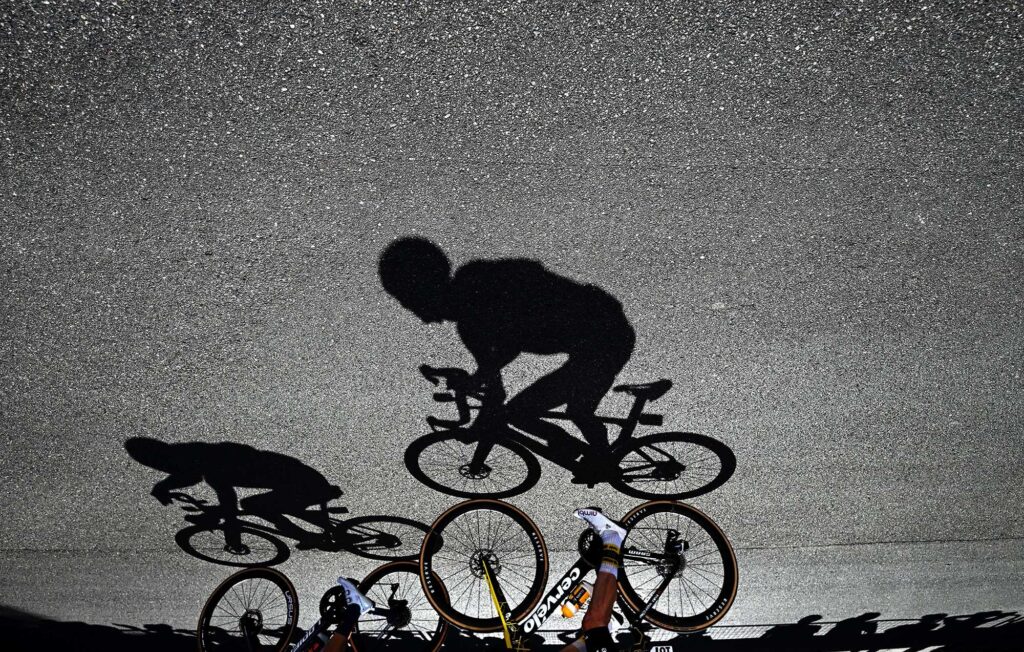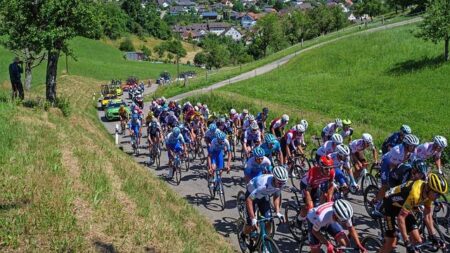Resilience versus Risk: Why Mental Health Issues Pose Pro Cycling’s Biggest Problem
In a sport renowned for its physical endurance and tenacity, professional cycling is facing an insidious challenge that extends beyond the body-the mental health of its athletes. As riders engage in grueling races across treacherous terrain, the pressure to perform at peak levels has taken an alarming toll on their psychological well-being. With a series of high-profile cases highlighting the struggles athletes face, including anxiety, depression, and burnout, the cycling community is grappling with a reckoning. While the narratives of resilience and grit dominate the cycling ethos, mental health issues have emerged as a critical vulnerability that could undermine the future of the sport. This article delves into the complex interplay between resilience and risk, examining how the cycling world is confronting its biggest challenge yet: the necessity of prioritizing mental health alongside physical prowess.
Resilience in the Peloton: Understanding the Mental Health Struggles of Professional Cyclists
In the high-octane world of professional cycling, the pressure to perform at peak levels can manifest into significant mental health challenges. Despite their public persona of resilience, many cyclists grapple with the psychological toll of relentless training regimens, intense competition, and the looming specter of injury. Factors contributing to these mental health struggles include:
- Extreme physical demands of the sport
- Isolation during grueling training sessions
- The pressure to maintain sponsorships and public image
- Injury-related anxiety and recovery stress
The combination of these elements creates an environment where mental health issues can flourish, yet they remain largely unspoken within the peloton.
Addressing mental well-being in the cycling community is critical to reversing the narrative of silence surrounding these struggles. Teams and organizations are beginning to recognize the importance of support systems, pushing for a culture where vulnerability is viewed as strength rather than weakness. Recent initiatives focus on laying a foundation for healthier minds, including:
- Training in mental resilience and coping strategies
- Incorporation of sports psychologists into team dynamics
- Creating peer support networks among athletes
As the cycling world slowly opens up about these issues, the hope is to foster an environment where cyclists are not just seen as competitors, but as human beings with complex emotional landscapes needing attention and care.
The Risk Factor: How Mental Health Issues Impact Performance and Team Dynamics
The impact of mental health issues in professional cycling extends beyond the individual athlete; it permeates the entire team dynamic, influencing everything from performance metrics to interpersonal relationships. Riders coping with anxiety, depression, or burnout may find their physical abilities compromised, leading to inconsistent results on the road. The stressors of competition, including rigorous training regimens and the pressure to perform, can exacerbate these mental health challenges, creating a cycle of underperformance that affects team morale. For instance, when a star rider struggles mentally, it not only diminishes their competitive edge but can also dampen the spirit of teammates who rely on shared victories and camaraderie.
Recognizing and addressing mental health issues in cycling teams can offer substantial benefits that go beyond the personal: by fostering a culture of openness and support, organizations can enhance overall team cohesion. Strategies such as regular mental health check-ins, access to counseling services, and team-building activities focused on emotional resilience can create an environment where athletes feel empowered to speak about their struggles without fear of stigma. The following table categorizes common mental health issues faced by cyclists and their potential impact on team performance:
| Mental Health Issue | Potential Impact on Performance | Team Dynamic Consequences |
|---|---|---|
| Anxiety | Impaired focus and decision-making | Increased tension and communication breakdowns |
| Depression | Decreased energy levels and motivation | Lowered morale among teammates |
| Burnout | Reduced performance and risk of injury | Feelings of isolation within the group |
Building a Supportive Culture: Recommendations for Enhancing Mental Well-being in Pro Cycling
Pro cycling is a high-pressure environment where the pursuit of excellence often overshadows mental well-being. As teams acknowledge the critical relationship between performance and mental health, it becomes imperative to cultivate an atmosphere of support. Implementing mentorship programs where seasoned athletes guide newcomers can foster solidarity and open lines of communication. Moreover, regular mental health workshops led by professionals should be introduced to help cyclists understand the challenges they may face and equip them with effective coping strategies. Creating a culture that normalizes the conversation around mental health can lead to better overall team dynamics and individual resilience.
To further enhance mental well-being, teams could adopt flexible training schedules that account for athletes’ mental health needs. Encouraging periodic mental health days, where cyclists can take a break from rigorous training, would signal an understanding of the human element in the sport. Additionally, establishing peer support groups within teams can empower riders to share their experiences and seek help without fear of judgment. Considerations for improving the professional cycling landscape may include implementing the following key recommendations:
- Regular Mental Health Assessments: Ensure athletes receive routine evaluations to monitor their psychological well-being.
- Accessible Mental Health Resources: Provide easy access to counselors and psychologists specialized in sports.
- Fostering Open Communication: Create an environment where cyclists can express their feelings and struggles candidly.
The Conclusion
As the world of professional cycling continues to evolve, the balance between resilience and risk remains a pressing concern. The growing prevalence of mental health issues within the sport cannot be ignored, as it poses significant challenges not only to the athletes but to the integrity of the sport itself. Organizations, teams, and riders alike must prioritize mental well-being, recognizing that true strength lies not just in physical endurance, but in the ability to confront and manage mental health challenges head-on.
The conversation around mental health in cycling is becoming more prominent, fostering an environment where riders feel supported in sharing their struggles and seeking help. However, the road ahead requires a concerted effort from all stakeholders to create a culture that values psychological health as much as physical performance. In doing so, professional cycling can steer away from the shadows of stigma and risk, paving the way for a more sustainable and healthy future for its athletes. As we move forward, it is crucial that resilience is not merely a badge of honor, but a collective commitment to fostering a sport where mental health is prioritized alongside racing glory.











